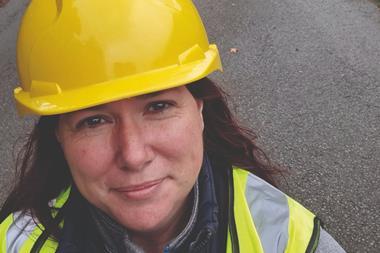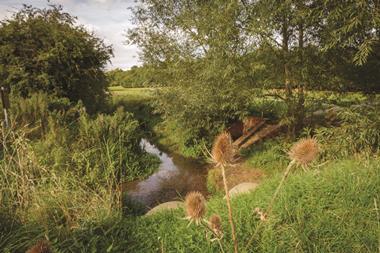Biodiversity net gain (BNG), designed to reverse the decline of biodiversity and put back more than is lost through development, is legally mandated as part of the 2021 Environment Act.

It is set to restore the natural environment and, if used effectively, can enable sustainable economic growth for developers.
Under the BNG ruling, when applying for planning permission, developers must describe the environmental impact of the development using a specific Defra metric, and quantify that lost habitat in biodiversity units.
They must provide evidence of what natural biodiversity will be lost and how they will replace it, plus how they will create (at least) 10% more in biodiverse habitat either on site at the development or off site. They must also demonstrate how they plan to manage and monitor the habitat and report to regulators for a minimum 30-year term.
Developers can do it in-house, where they manage and monitor the biodiverse habitat created for 30 years and are legally accountable for its management and monitoring to regulators.
Alternatively, they can purchase BNG units off site generated from habitat creation schemes. One such scheme, which is happening now, is known as Habitat Banks. This is where typically 10ha to 100ha sites are created before the developer even needs them.
With offsite Habitat Banks, developers purchase units to meet regulations but do not need to worry about the 30-year legal obligation to ensure delivery, monitoring and reporting on the habitat creation.
Rather, a specialist firm such as Environment Bank discharges developer BNG duties and becomes legally responsible for them with the local planning authority, enabling the developer to proceed unencumbered. This removes the costs, risks and liabilities of long-term management from developers; and large areas of wildlife habitat are created with a guaranteed future.
Offsite delivery of BNG requirements gives us a very real prospect of sustainable economic growth, with our collective ambitions for nature recovery in England being finally realised.
James Cross is chief executive of Environment Bank
































No comments yet